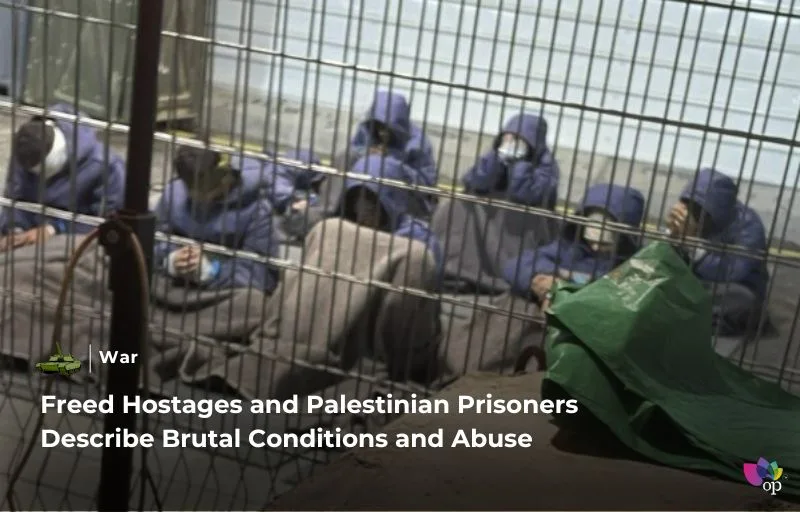According to the reports, newly freed Israeli hostages have described the brutal conditions they endured in Hamas captivity, including severe malnutrition, psychological torment, and forced confinement in cages. Keith Siegel, one of the hostages, lost significant weight due to starvation and had to abandon his vegetarian diet to survive. Others, like Ofer Kalderon, managed to hear news from smuggled radios, offering brief moments of hope. Hostages were subjected to psychological abuse, including being forced to record staged messages thanking their captors, and were only given increased food portions shortly before their release to make them appear healthier.
The testimonies also reveal that some hostages were locked in cages, taken out only once a day, and forced to wear traditional clothing. Instead of proper hygiene, they were given cold wet cloths to clean themselves. Many suffered extreme weight loss, and some required sedatives due to overwhelming distress. In the final days before their release, Hamas reportedly increased their psychological pressure, making them sign coerced documents and record farewell messages. The hostages were frequently moved between locations to evade Israeli forces, with medical experts warning of long-term physical and psychological trauma.
Meanwhile, the Palestinian Prisoner’s Society reported that dozens of Palestinians released from Israeli jails showed clear signs of torture and starvation. Many prisoners emerged weak, dressed in stained grey jumpsuits, and required urgent medical attention upon their release. Testimonies from freed detainees describe systematic beatings, prolonged starvation, and untreated illnesses, including scabies. Some suffered fractured ribs due to severe beatings, while others reported undergoing medical procedures without anesthesia. The organization accused Israel of engaging in “organized terrorism” against Palestinian prisoners and their families.
The release of hostages and prisoners occurred as part of a ceasefire agreement between Hamas and Israel, which saw 183 Palestinians freed from Israeli jails in exchange for 33 Israeli captives held in Gaza. Hamas claimed it treated Israeli hostages humanely despite harsh conditions in Gaza caused by Israeli bombings. In contrast, Haaretz reported that Red Cross officials expressed outrage at Israel’s treatment of released Palestinian detainees, who were handcuffed with their arms raised and labeled with degrading messages. The contrasting accounts of captivity highlight the severe humanitarian toll of the conflict on both sides.
References



Your article helped me a lot, is there any more related content? Thanks!
Your point of view caught my eye and was very interesting. Thanks. I have a question for you.
Your point of view caught my eye and was very interesting. Thanks. I have a question for you.